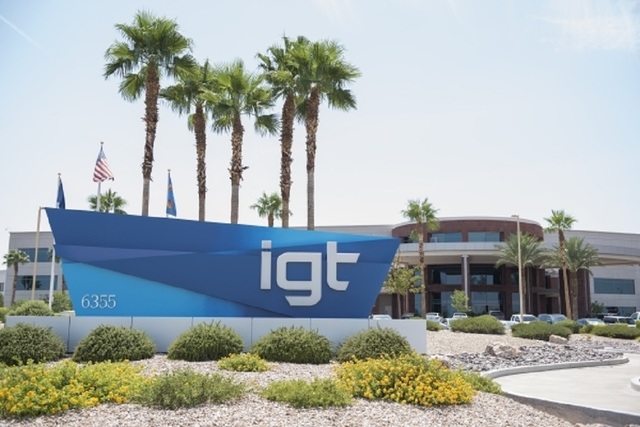Former exec for Disney affiliate has roller coaster ride with IGT


It’s a good thing John Vandemore spent several years as the chief financial officer for Imagineering, the theme park development arm for the Walt Disney Co.
His tenure as CFO of International Game Technology has been one roller coaster ride after another.
Things appeared to be settling down for the slot machine giant after a tumultuous two months in March and April.
Even one of the company’s harshest Wall Street critics, Credit Suisse gaming analyst Joel Simkins, offered a few positive comments about IGT in a June 3 research report to investors.
Less than a week later, IGT found itself at the center of a whole new wave of attention from the investment community.
Reports surfaced that the company put itself up for sale by hiring investment bank Morgan Stanley to field offers. The news sent IGT shares soaring to their highest level in months.
A company spokesman said he wouldn’t discuss rumors.
Vandemore, who was interviewed three days before the sales reports became public, said IGT spent the last few months ignoring headlines and concentrating on its core business of slot machine and technology development.
“Our focus has been on running the business and creating products for our customers,” Vandemore said.
Simkins told investors on June 9 there was a chance that IGT could be sold. A transaction was possible because CEO Patti Hart is in her fifth year of a “tumultuous stay” at IGT.
“Until there is a formal announcement by the company, it’s a bit early to jump to conclusions,” Simkins said.
IGT was seemingly rebounding from its awful spring.
The company laid off 7 percent of its global work force in March to save costs and lowered its fiscal 2014 guidance. In April IGT reported a 66 percent decline in second-quarter earnings and a 15 percent decline in net revenue.
“Nobody likes to go through a cost reduction,” Vandemore said, “But our team has buckled down and is pushing ahead. I would say we are much more efficient in everything we do.”
After taking its lumps from Wall Street, IGT pushed ahead.
In April, the company launched Powerbucks, the first multistate progressive jackpot network, linking games of two casino operators in Nevada and New Jersey. IGT has seen some marginal success through the placement of some of its newer licensed slot machine titles, including games based on the movie “Avatar.”
Wall Street, however, has given up hope for slot machine sales improving industrywide during 2014.
IGT does have an additional financial driver through its interactive gaming division, which grew revenue 20 percent in the last quarter.
IGT Interactive includes DoubleDown Casino, its social gaming element, and the company’s online slot products that are being used by Atlantic City casinos in New Jersey’s Internet gaming operations. Through June, IGT has made 25 of its most popular slot machine titles available for use online in New Jersey. Another nine titles are expected to be released by the end of August.
Meanwhile, DoubleDown is no longer viewed negatively by Wall Street. IGT paid $500 million for the business more than two years ago and was roundly criticized. The purchase of a social gaming company by Bally Technologies earlier this month for up to $100 million validates IGT’s view of social gaming.
This month, IGT launched a soccer-themed slot game through DoubleDown, just in time for the World Cup.
“We have always viewed ourselves as an industry leader and as a company that sees a business opportunity before others do,” Vandemore said. “We never wavered in our commitment to DoubleDown.”
In his June 3 investors note, Simkins took a positive view of DoubleDown, saying the business provided the company growth opportunities in social gaming and “room to exploit its content development” long-term in the traditional casino setting.
But sales rumors could slow or halt any progress correcting the company’s direction.
Simkins said IGT’s management has been through the ringer, having dealt with numerous executive changes, constant pushback from the investment community, initial criticism over DoubleDown, a proxy fight in 2013 and controversy over Hart’s tenure on the Yahoo board of directors.
“With that in mind, we understand why a fatigued management team and board may look for an exit in light of a more arduous turnaround,” Simkins said.
Contact reporter Howard Stutz at hstutz@reviewjournal.com or 702-477-3871. Follow @howardstutz on Twitter.












